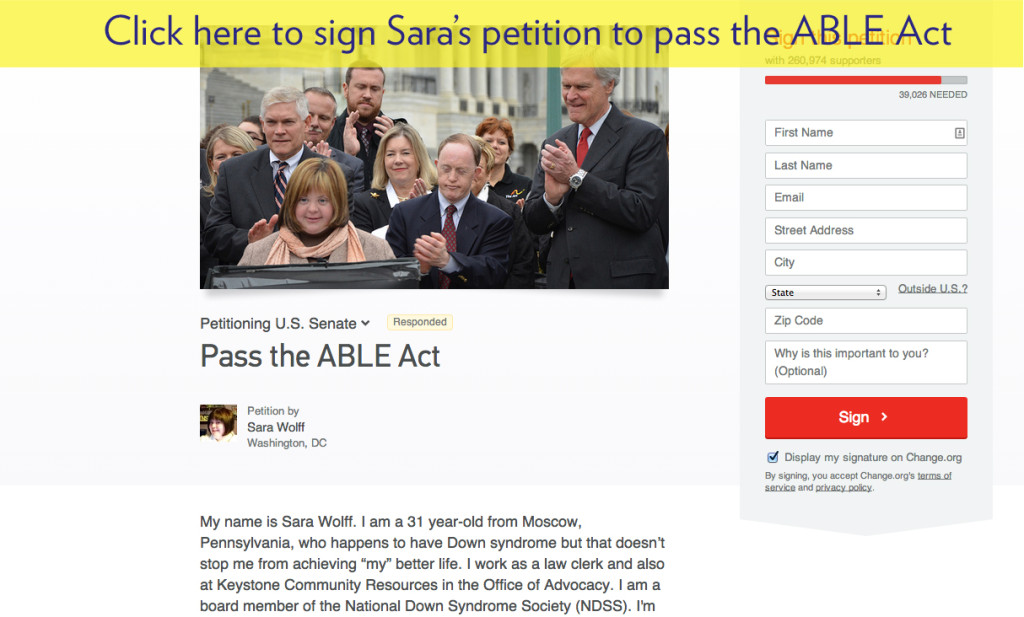We applaud the work of Representative Chris Smith (R-NJ) and Representative Michael Doyle (D-PA), their staff, and all co-sponsors who ensured that The Autism Collaboration, Accountability, Research, Education, and Support Act of 2014 or the Autism CARES Act of 2014 became law on August 8, 2014. This legislation reauthorized the 2006 Combating Autism Act through 2019 at an annual funding level of $260 million. Many thanks to the 180 Members of Congress from over 40 states who joined this bipartisan and bicameral effort.
It is worth noting that Autism CARES addresses the challenges related to the transition from existing school-based services to those available during adulthood as thousands of young adults age out of the support services in educational systems with little or no employment, housing, or other programs, and long waiting lists.
The passage of the Achieving a Better Life Experience Act of 2013 or the ABLE Act of 2013 is an important step for those aging with autism and other disabilities to save money for their futures and not be fated to a life of poverty.
Briefly, the ABLE Act amends the Internal Revenue Code to establish tax-exempt accounts to assist an individual with a disability in building an account to pay for qualified disability expenses including expenses for education, including higher education expenses, a primary residence, transportation, obtaining and maintaining employment, health and wellness, and other personal support expenses. Sens. Robert Casey, Jr., (D-PA) and Richard Burr (R-NC), and Reps. Ander Crenshaw (R-FL), Chris Van Hollen (D-MD), Cathy McMorris Rodgers (R-WA), and Pete Sessions (R-TX) introduced the ABLE Act into Congress and, if all goes well, this legislation will pass in the fall.
Consider signing the petition (below) started by Sara Wolff, a disability advocate, and contact your representatives if you haven’t done so to let them know that you support this important legislation.




 Study: 50% of Americans don’t recall the name of “that lady across the street”
Study: 50% of Americans don’t recall the name of “that lady across the street”


